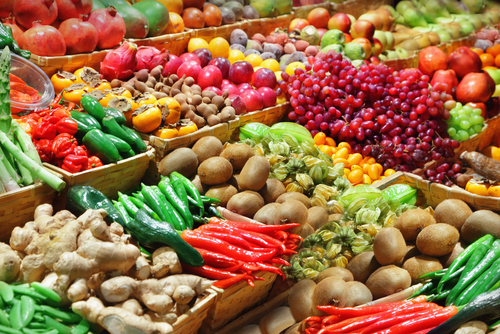EU citizens waste almost 50m tonnes of food every year and it could be avoided, according to research by the European Commission.
Researchers looked at food waste records from six EU Member States; the UK, the Netherlands, Denmark, Finland, Germany and Romania from 1996 to 2005.
The UK was the worst offender; wasting the equivalent in weight of one can of beans per person per day, the research found.
Nearly 80% of food waste in the six EU Member States is avoidable and found that theoretically, zero avoidable food waste is a possibility for EU consumers.
One of the researchers, Davy Vanham, said that this would not only save a lot of money for the consumers themselves, but also for local authorities, which have to pay for food-waste collection and treatment.
“In addition, this would not only save a large volume of water and avoid losses of reactive nitrogen, but it would also preserve other natural resources such as phosphorus, land and energy,” he said.
Romania had the best record when it came to food waste, wasting what would correspond to one apple per person per day.
“We’ve noticed with Romania, and Africa, that there is less food waste as the population tends to have less money,” he said.
The total EU consumer food waste averaged 123kg per capita per year (with a range of 55–190kg per capita per year), roughly 16% of all food that reached consumers, it found.
“Uncertainty is very high in these waste quantities, but has never been assessed in previous studies. Thus, for the first time, we have provided an estimate of the possible range,” Vanham said.
Avoidable food is, in other words, edible food that wasn’t consumed while non-avoidable food waste comprises items such as meat bones, egg shells, fruit stones, or fruit and vegetable peel, it said.
The European Parliament recently called for urgent measures to halve food waste in the EU.
“In the EU, consumers are responsible for a major part of the total waste along the food supply chain.
“In a world with limited resources, food security can only be achieved by a more sustainable use of resources, along with adaptations to our consumption behaviour, including the reduction or, ideally, the eradication of food waste,” according to Vanham.
Whilst the bulk of the waste was fruit, vegetables and cereals, presumably because of their relatively short shelf-life, wasted meat contained the largest amounts of nitrogen and water. Wasted cereals came in in second place.
“Meat production uses much more resource in the first place. So even a little bit of waste can have a big effect in terms of lost resources,” he said.
“Ideally, we’d like data from all the Member States – but the data from the other countries is not as reliable. Certainly it would be useful if governments invested more in measuring waste with greater accuracy,” Vanham said.
